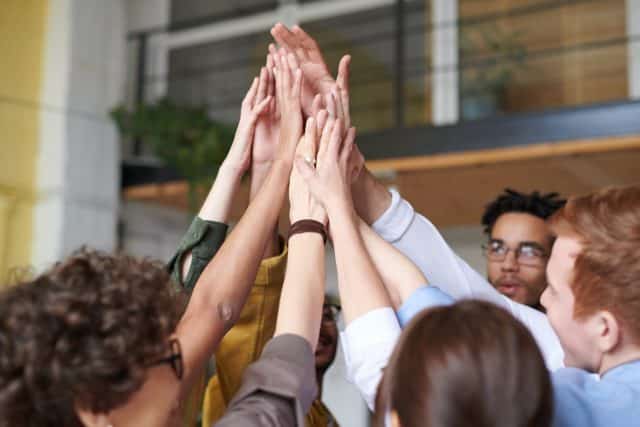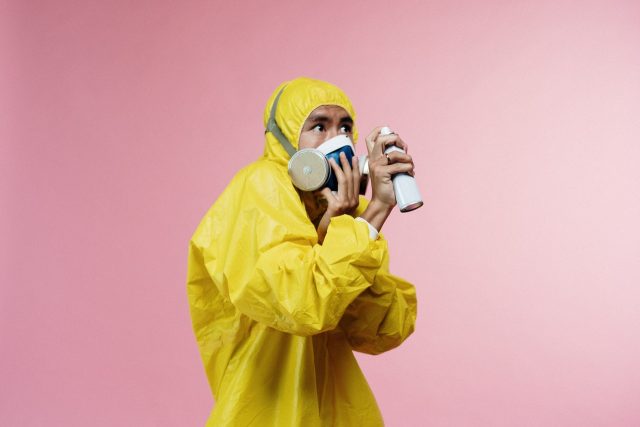
Many people saw a meme going around in late January - early February that looked like a reputable news story, with the headline: “Cocaine Kills Coronavirus, scientist is shocked that the drug can fight the virus”. This had many people seeing (and believing) that just maybe, the illegal, illicit drug could help prevent people from getting COVID-19. Of course, to answer the question can cocaine help kill the coronavirus, or COVID-19 is a resounding NO. Absolutely this news “story” was false.
Cocaine cannot kill the coronavirus, nor assist in the treatment of any disease. In fact, the use of cocaine in any form would probably only make any symptoms of COVID19 much, much worse. Coronaviruses are a respiratory infection that weakens your breathing and causes a nasty cough in the most severe cases. Snorting coke as a powder, or smoking crack cocaine both damage your respiratory tract, which could weaken your immune system response. Using cocaine would hinder your ability to fight-off diseases by harming your body’s natural response system.
Oddly enough, in researching this story, I found out the meme originated from a tweet by Anton Newcombe, the front man for the 1990’s psychedelic-revival, American rock band: The Brian Jonestown Massacre.
Breaking News: #coronavirus ? pic.twitter.com/AWiDvw9lP8
— anton newcombe (@antonnewcombe) January 30, 2020
This is a band that I am a huge fan of. I actually still listen to BJM (a lot) and that I have followed for years, so it was kind of a funny discovery for me. Even Newcombe himself was shocked at how far the tweet had spread. The French government’s official Health Ministry had to issue a tweet saying: “No, cocaine does not protect against COVID-19.”
#Coronavirus #COVID19 | Pour se protéger et protéger les autres :
Se laver régulièrement les mains
Tousser dans son coude
Utiliser un mouchoir à usage unique
Ne pas se serrer la main? Téléchargez les supports de communication https://t.co/J0rF5r9N5t
? https://t.co/lMMn8i6Fl1 pic.twitter.com/hbnDSYVEIg— Ministère des Solidarités et de la Santé (@MinSoliSante) March 10, 2020
Furthermore, major mainstream media publications, like CBS News and Business Insider have covered the controversial ‘cocaine kills the coronavirus’ tweet. The latter compelled the BJM front man to reply on his own tweet: “a minimum of common sense is needed when you are online” adding, “this tweet was a joke.” Unfortunately for logic, the joke went over the heads of quite a few people. I’m guessing a lot of wishful thinking went into the (no pun intended) viral spread of this tweet as misinformation.
Another post of internet disinformation by none other than QAnon. It claimed that drinking a “Miracle Mineral Solution” or “MMS” would kill the coronavirus. This “MMS” is a type of bleach, and is deadly. Obviously, drinking bleach will kill you before it ever killed any viruses in your body, so please, have some common sense and don’t drink bleach either!

Top-notch memes are being created in this time of morbid uncertainty.
This quarantine has hit all of us pretty hard. All across the world, people are washing their hands and practicing social distancing, but what does that mean for people in active addiction recovery that are reliant upon a social network of peer support groups? For people who use drugs or are in a treatment program for addiction and a substance use disorder, the threat of the coronavirus might seem remote when compared to the very real threat of a drug overdose, painful withdrawal symptoms, or a life-threatening relapse.
The Centers for Disease Control (CDC) recently recommended that people stock up on their medications along with food and other necessities as the quarantine began to close stores and force people to stay home. With strict federal control of medication-assisted treatment (MAT) prescriptions like buprenorphine for opioid use disorder, it is impossible for a recovering addict to obtain a larger supply of these life-saving medications.
Many who are struggling with addiction are currently being faced with yet another onerous hurdle to their continued sobriety. Continuity of care is essential in addiction treatment programs. The disruption of quarantine guidelines sent down from federal, state and local governments can cause people to miss doctor appointments and other types of treatment services, like counseling and group therapy sessions.

It's hard to have peer support group meetings in the quarantine from the COVID-19 pandemic.
Absolutely vital 12-step program meetings, like AA and NA are virtually nonexistent. Yet many are trying to adapt to the current state of everything as best as they can. Some peer support groups and drug rehab centers have begun hosting meetings and outpatient group therapy videos online. Through streaming services like Facetime, Skype Google Hangouts or Zoom, they hope to offer continuity of care while we all attempt to socially-distance ourselves from one another.
Many drug rehabilitation facilities are making rapid changes to their services due to the coronavirus pandemic. In my opinion, these changes are urgent given the existential weight of this global threat. Typically stressful situations, (say, a pandemic for instance) can trigger recovering addicts, tempting them to relapse into their old, familiar patterns of substance abuse.
These stressors are especially difficult not only for people who are recovering, but also for people currently in active addiction.

2020 has been an eventful year...
It is hard for many of us to see the light at the end of the tunnel. Not only do we have to deal with a potentially-deadly, highly-contagious virus spreading, but we will also have to deal with a substantial economic crisis once this quarantine is over. With all the stress, worry and uncertainty of 2020, many in the drug rehab industry are worried that more people will relapse as a result of this crisis.
The good news is that drug rehabilitation facilities are still open all across the United States. They, like other medical services, are considered “essential businesses” and while they are allowed to remain open at this time, many are turning to video services both for group therapy sessions and one-on-one counseling, in an attempt to limit physical, social contact. Sarah Dowling, the program director for 10 Acre Ranch, an addiction treatment facility in Riverside, California had this to say about the pandemic:
"During this desperate time of crisis there is still hope and community. Online meetings are in full effect and people are learning how to stay connected without the ability to leave their homes. It is refreshing to see people making extra efforts to reach out to those who are seeking help. I would hope anyone in need would find the courage to call us or log into an online meeting for support." - Sarah Dowling MSW, CADC-III, CATC IV
Program Director
(877)-228-4679